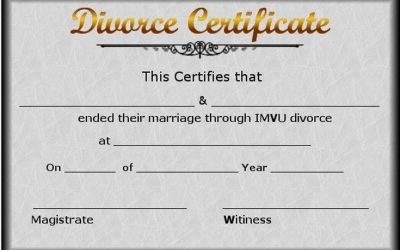Sharia Marriage Rules in the UAE: Understanding the Key Updates for 2025
Table of Contents ▼
What’s changed in the Sharia marriage rules in 2025? Make sure you’re up to date.
The UAE’s Sharia marriage rules have seen significant updates in 2025, and understanding these changes is crucial for anyone planning a marriage in the country. Whether you’re a first-time bride or groom or an expat looking to marry according to Islamic law, staying informed is key to avoiding delays and complications in the process.
In this blog, we will break down the important updates to Sharia marriage rules for 2025, including the latest documentation requirements, marriage procedures, and the updated legal framework.
Understanding Sharia Marriage Rules in the UAE
The UAE operates under a dual legal system where Sharia marriage rules govern personal matters such as marriage, divorce, and child custody for Muslims. These rules follow Islamic jurisprudence, ensuring that all marriages are both legally valid and in line with Islamic principles.
By marrying under Sharia marriage rules in the UAE, couples ensure that their union is both spiritually significant and legally binding. The process involves specific steps, requirements, and documentation that must be followed to ensure the marriage is valid under both Sharia law and UAE law.
Key Requirements for Sharia Marriage in 2025
Essential Documents You’ll Need
Marriage under Sharia marriage rules in the UAE requires careful preparation, especially regarding documentation. Couples must provide the following documents to ensure their marriage is legally recognized:
For UAE Nationals:
- Emirates ID
- Family Book (Khulasat al-Qaid)
- Medical fitness certificate
- Pre-marital screening certificate
- No-objection certificate from the family court (if previously married)
For Expat Muslims:
- Valid passport with UAE residence visa
- Attested birth certificate
- Certificate of no impediment to marriage from home country
- Medical fitness certificate
- Pre-marital counseling certificate
- Salary certificate or employment letter
Age and Consent Requirements
According to Sharia marriage rules in the UAE, both parties must be at least 18 years old to marry legally. Exceptions can be made with court approval in specific cases. Additionally, mental capacity and free consent are mandatory to ensure both parties understand the marriage contract’s significance.
For first-time brides under 25, parental consent is typically required, reinforcing the importance of family involvement in the decision-making process.
Recent Updates to UAE Sharia Marriage Laws
2025 Legislative Changes
In 2025, the UAE introduced several updates to Sharia marriage rules, which aim to simplify and modernize the marriage process while maintaining Islamic principles. Some of the key changes include:
- Expanded pre-marital counseling: Couples are now required to discuss financial planning, conflict resolution, and family planning, in addition to emotional health.
- Streamlined documentation: The documentation process has been simplified to help reduce delays and improve efficiency.
- Enhanced spousal protection: New measures have been put in place to ensure that both spouses are protected throughout the marriage, including during divorce and inheritance processes.
These updates aim to better prepare couples for married life and to ensure they have the tools to navigate common challenges.
Digital Integration and Processing
The UAE has introduced digital platforms to make the Sharia marriage rules process more efficient. Online systems now allow couples to submit documents, book appointments, and track the progress of their application. This integration makes the marriage process faster and more transparent, ensuring couples can stay informed about their marriage application status.
The Marriage Contract Process
Nikah Ceremony Requirements
The Nikah ceremony is the formal religious contract in an Islamic marriage. Under Sharia marriage rules, the Nikah ceremony requires the following:
- Presence of two male witnesses, or one male and two female witnesses
- Recitation of marriage contract terms in Arabic
- Agreement on the mahr (dower) amount
- Signatures from both parties and the witnesses
The mahr is a vital part of the marriage contract, representing the husband’s financial commitment to the wife. The mahr can be immediate or deferred, and the couple must agree on the amount before the ceremony.
Court Registration
Once the Nikah ceremony is complete, the marriage must be registered with the local Sharia court within 30 days. This step is crucial because it turns the religious ceremony into a legally recognized marriage under UAE law.
The court will verify the documents, confirm the details of the ceremony, and issue an official marriage certificate. This certificate is important for various legal matters, such as visa applications, property transactions, and child registration.
Financial Obligations and Rights
Understanding Mahr and Financial Responsibilities
In Sharia marriage rules, the mahr serves as a financial obligation from the husband to the wife. It can be paid either immediately or deferred, depending on what the couple agrees to. The mahr is a fundamental part of the marriage contract, symbolizing commitment and providing financial security for the wife.
In addition to the mahr, husbands are responsible for nafaqah (maintenance), housing, and medical care. These responsibilities are enforceable under UAE law and are part of the husband’s financial obligations to his wife.
Property and Asset Considerations
Under Sharia marriage rules in the UAE, property ownership is generally separate between spouses. Each individual retains ownership of assets brought into the marriage and those acquired individually. However, property acquired jointly and gifts exchanged between spouses are subject to specific Islamic guidelines.
It’s important to clarify these financial matters before marriage to prevent future disputes and ensure that both parties are aware of their rights and obligations.
Rights and Obligations Under UAE Sharia Marriage Rules
Spousal Rights and Responsibilities
Marriage under Sharia marriage rules creates mutual rights and responsibilities. Husbands have a financial duty to provide for their wives, including maintenance, housing, and medical care. Wives are entitled to respectful treatment, financial support, and personal autonomy.
Both spouses are also responsible for raising children, managing family matters, and maintaining the marital relationship. The UAE courts protect these rights and intervene when necessary to uphold fairness and justice.
Child Custody and Parental Rights
Child custody in the UAE is governed by Sharia marriage rules, with courts considering factors such as the child’s age, emotional well-being, and the stability of the home. Recent updates emphasize the best interests of the child, ensuring that both traditional Sharia guidelines and modern considerations are balanced.
Special Circumstances and Considerations
Interfaith Marriage Considerations
Sharia marriage rules in the UAE allow Muslim men to marry women from the Abrahamic faiths (Christians and Jews) under specific conditions. These marriages require additional documentation and must be processed according to certain legal requirements.
For Muslim women, marriage to non-Muslim men requires the husband’s conversion to Islam before the ceremony can proceed under Sharia marriage rules.
Second Marriage Procedures
Under Islamic law, polygamy is allowed, but it comes with strict conditions. In the UAE, the husband must demonstrate financial capability and ensure equal treatment of all wives. The UAE courts closely review second marriage applications to ensure they comply with Sharia marriage rules.
Practical Steps for Your Sharia Marriage
Timeline and Planning
Planning ahead is essential when marrying under Sharia marriage rules. Start at least 2-3 months before the wedding to gather the required documents, undergo medical examinations, and schedule court appointments. Early planning helps avoid last-minute stress and ensures everything is ready on time.
Choosing the Right Ma’zoun
It’s essential to choose an experienced Ma’zoun who is authorized and familiar with your specific marriage requirements. Their expertise will ensure that the process goes smoothly, and the ceremony is performed correctly according to Sharia marriage rules.
Common Challenges and Solutions
Document Attestation Issues
Attestation of documents can be complex, particularly when dealing with international paperwork. Be sure to allow extra time for these procedures and consider working with professionals who specialize in document attestation.
Language Barriers
All official procedures occur in Arabic, so it’s important to arrange for certified translations if necessary. Hiring a translator or bringing an Arabic-speaking friend to appointments can help ensure clear communication.
Conclusion
Navigating the Sharia marriage rules in the UAE is crucial for couples who wish to marry under Islamic law. The 2025 updates provide an even more streamlined process, enhancing efficiency and ensuring better protection for both spouses.
By staying informed and preparing ahead of time, couples can avoid unnecessary delays and ensure that their marriage is both legally and religiously valid. For expert guidance throughout the process, visit Easy Wedding today and start your Sharia marriage journey with confidence.


